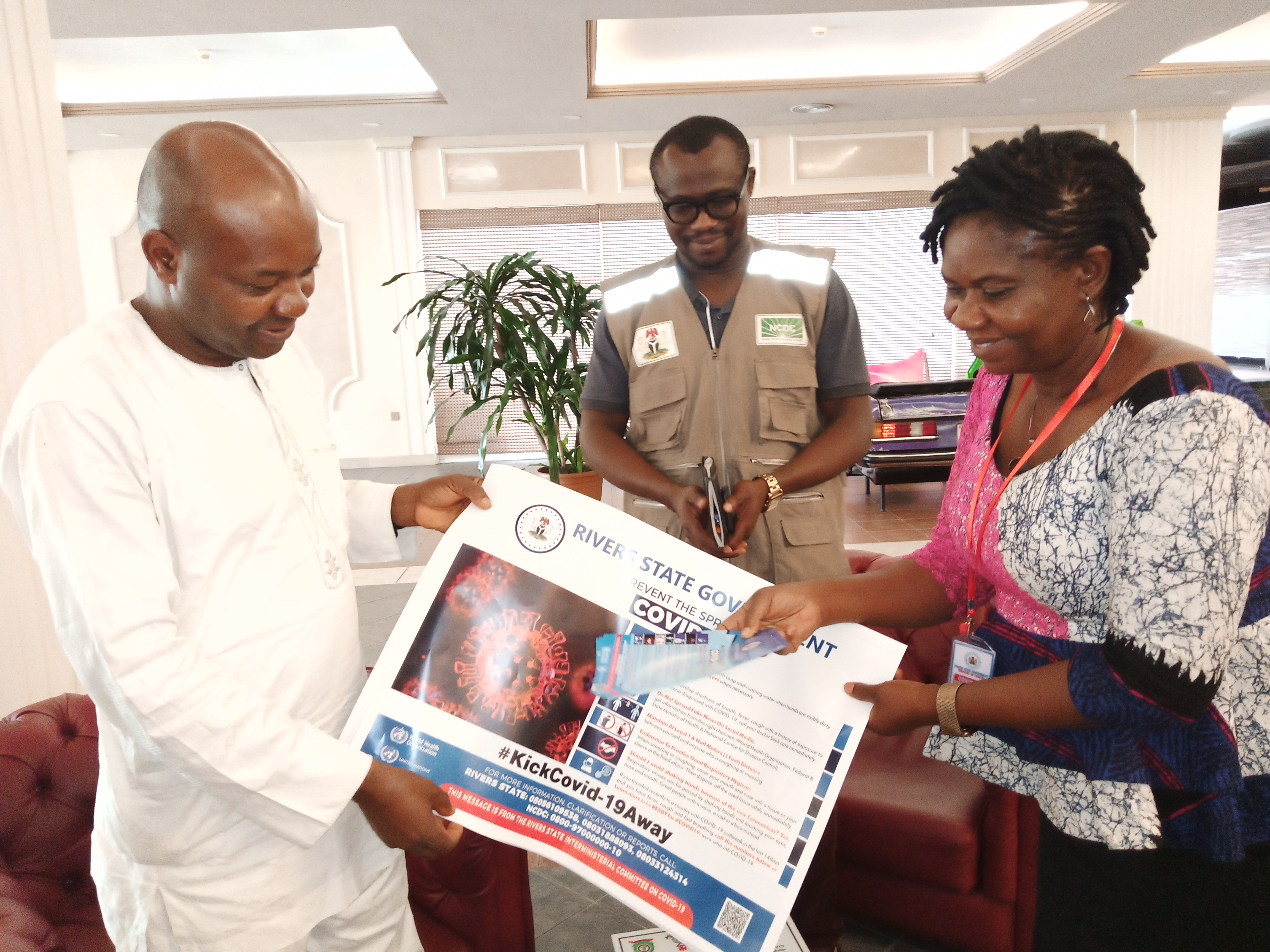Business
COVID 19: Mixed Reactions Trail Lockdown In Rivers

Some entrepreneurs in Rivers State have expressed mixed feelings about the curfew imposed by the state government in some parts of Rivers State as part of measures to curtail the spread of coronavirus pandemic.
While some of them commended the state government for taking proactive measures against the dangerous disease, few others lamented the economic hardship the measure has inflicted on the citizenry.
In an interview with The Tide in Port Harcourt, the Managing Director of Willy Works and Marine Services Limited, Mr Williams Kalagbor, said the lockdown order was in the interest of the masses.
The Managing Director said the lockdown was necessary to save lives even though it would affect businesses “especially the renewal, when business men and women thought the lockdown is coming to an end”.
Kalagbor commended Governor Nyesom Wike for being proactive in the fight against the spread of COVID-19 in the state, saying those who criticised the lockdown lacked understanding about the whole pandemic. “I don’t know why people are always seeing things from the wrong perspective.
What we are talking about here is a deadly disease that can cause death and stop one’s business for ever.
“When the virus starts spreading and people start dying, the same people will complain that government is not doing enough to stop the pandemic”, he said.
On the effects of the lockdown on his business, he said everything was tied down as marine services have been badly affected, stating however, that “life is superior to what will be used to take care of it”.
Another entrepreneur, the Managing Director of Danlily Motors International, Mr. Daniel Effiong, said the lockdown was a step in the right direction to save lives of the citizens. Effiong noted that the total lockdown on the areas mentioned by Governor Wike was caused by disobedience of business men and women in the areas.
He noted that almost all the businesses were affected by the pandemic and that, “hunger is everywhere but we need to live.
“Let us obey government and stay at home because the period must be over. Only the living will go back to their businesses”.
A spare part dealer at Ikoku who pleaded anonymity, however, faulted the renewed lockdown order, stating that “people cannot stay at home and die in hunger when enough food has not been provided by government to all the citizenry”.
He reiterated that the three tiers of government in Nigeria have not done well compared to what is obtainable in other countries of the world in connection to the sit-at-home order.
The Tide reports that the Rivers State government yesterday placed a total lockdown on some parts of Port Harcourt City Local Government Area until further notice.
By: Lilian Peters
Transport
Automated Points Concession : FAAN Workers Gave 72hrs To Revise Decisions In PH

Transport
FAAN Announces Pick-Up Points for Go-Cashless Cards

Business
Fidelity Bank To Empower Women With Sustainable Entrepreneurship Skills, HAP2.0
-

 News4 days ago
News4 days agoAmend Constitution To Accommodate State Police, Tinubu Tells Senators
-

 Politics4 days ago
Politics4 days agoSenate Urges Tinubu To Sack CAC Boss
-
Business4 days ago
Crisis Response: EU-project Delivers New Vet. Clinic To Katsina Govt.
-

 News4 days ago
News4 days agoDisu Takes Over As New IGP …Declares Total War On Corruption, Impunity
-
Business4 days ago
President Tinubu Approves Extension Ban On Raw Shea Nut Export
-
Business4 days ago
President Tinubu Extends Raw Shea Nuts Export Ban To 2027
-
Business4 days ago
Fidelity Bank To Empower Women With Sustainable Entrepreneurship Skills, HAP2.0
-
Sports4 days ago
NDG: Rivers Coach Appeal To NDDC In Talent Discovery

